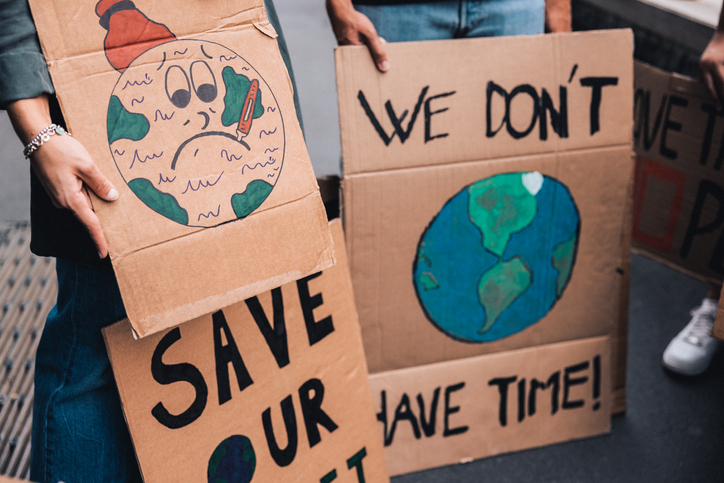HBCU Climate Change Conference Could Spark Needed Conversations
Source: Vladimir Vladimirov / Getty
The HBCU Community will come together for the 8th Annual HBCU Climate Change Conference next week.
The Deep South Center for Environmental Justice in collaboration will host the event in collaboration with Texas Southern University on April 13 – 16, 2022 in New Orleans, Louisiana.
The goal of the conference is to unite HBCU faculty, students, researchers, climate professionals and environmental justice, and coastal community residents affected by detrimental weather caused by or related to climate change. The conference will work to help eliminate the gap between theory and the day-to-day realities of climate change. Issues such as climate justice, adaptation, community resilience, global climate problems, and other major climate change topics like transportation, energy sources, carbon emissions, and more will be discussed at the event as well.
Also, the conference will work to incorporate local high school students into the activities of the conference. These teenagers who are looking to attend College will have the opportunity to learn more about how climate science is an integral part of their lives. The activities will offer an introductory glimpse into the realities of climate change for these young students through computer-simulated games and other forms of engaging learning tools.
The conference was originally postponed until the Spring of 2022 due to the surge in the COVID19 Omicron Variant. But now the HBCU community will have an opportunity to come together to discuss and hopefully find some practical solutions to a very important issue.
In May of 2021, Energy Secretary, Jennifer Granholm, spoke to theGrio about the importance of inclusion for HBCUs and becoming actively involved in the discussion on climate change.
“My first venture out in this COVID environment was to Howard University … it was to announce a $17 million opportunity at DOE [Department of Energy] offering to support college internships and research projects and opportunities and to bolster investment in underrepresented use in minority-serving institutions,” said Granholm.
“If you don’t have diverse researchers at the table, your research product, whatever it is, is going to not be as effective,” Granholm continued. “So, for example, when we have all this face recognition software out there, all this artificial intelligence, well, they’re the way MIS identifies African-American faces, especially in law enforcement. If you have more people of color who are on the teams doing the development of that software and that technology, then you will not have that problem.”
The conference will likely continue to serve as a vital step in helping to get more diversity in the conversations around climate change.
“We have to have diverse participation in the design of these products and the research of them,” stated Granholm. “And that’s why we need to increase the diversity in our laboratories, but of our stem, our science, technology, engineering, and math workforce.”
SEE ALSO:
President Biden Releases Funding Proposal For HBCUs, Shifts Pressure On Congress To Act
United Negro College Fund Launches HBCUv Platform To Advance Digital Learning, Cultivate Community

